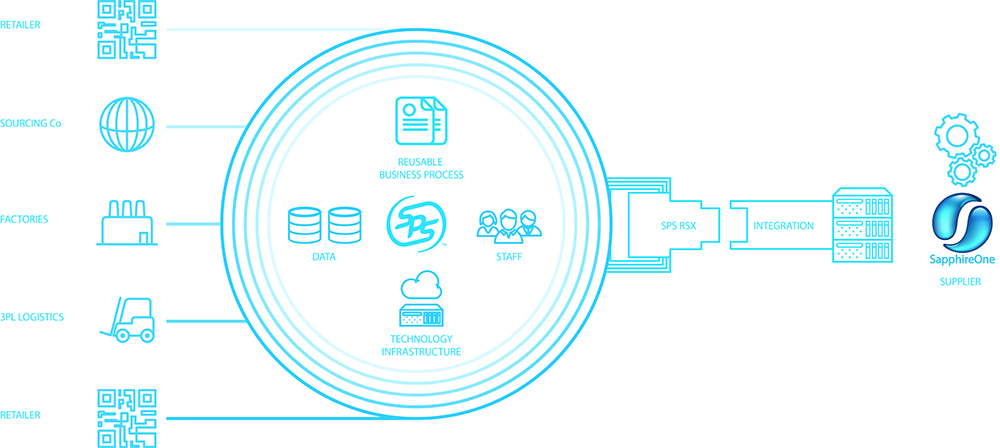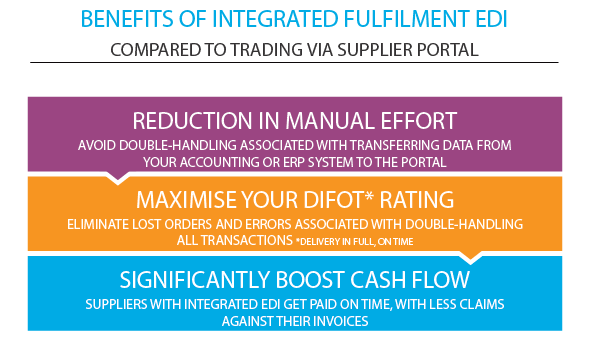Application Protocol Interface (API) How it helps Business Leaders integrate with the SapphireOne ERP?
January 8, 2018 12:06 pm | by John Adams

Business leaders increasingly understand the potential of API’s, but still too few understand the need for API Tools. An API Tool is a necessity in today’s digital world. API stands for Application Protocol Interface. An API is a software intermediary that allows two applications to talk to each other. Therefore, a good API makes it easier to develop a program by providing the building blocks for communication. API Gateway is a powerful tool that provides an efficient, accurate, and cost-effective method for CRM data integration from your web portal to your software, or online database. Integration with an API system saves time and improves your efficiency. Application Protocol Interface make data available for use by apps and the developers that create them. They allow enterprise assets to be accessed by apps, and they are the tool that enterprises use to add a digital layer to their interactions with customers, employees and partners.
In the simplest terms, Application Protocol Interfaces are sets of requirements that control how one application can integrate with another. APIs aren’t at all new, whenever you use a desktop or laptop, APIs are what makes it possible to move information between programs – as an example by cutting and pasting a snippet of a document into an Excel spreadsheet. System-level APIs makes it possible for applications to run on top of an OS like Windows, Mac and other OS’s. APIs are important for business because they allow programmers to build amazing tools that help us do our jobs more effectively.
How API works?
There are many big companies like Oracle, Microsoft, SAP that provide API tools. The SapphireOne API tool improves efficiency and saves on manual data entry. Some examples are Electronic Data Interchange (EDI), Finger Print scanning, Scanning Barcodes and integration with Brand Scope. The Barcode API detects barcodes in real-time on multiple devices. With clever use of this Application Protocol Interface, you can automate various commerce, business, and publishing tasks and can integrate all kinds of apps with our platform. Entering data by hand (typing it in) is likely the most common and least efficient way to get data into a database. We won’t discuss this here. Instead, we will focus on other automated or real-time methods of getting data into databases.
In a similar way, if you use SapphireOne ERP, CRM & Business Accounting Software, you can automatically import your data to the SapphireOne application. Manage an unlimited number of data sources, import templates, interfaces, product templates and data entry jobs. With the help of API interface, product data can be transferred directly to different tables and there by updated as needed. Product data can be imported from one or more data sources and this allows the regular maintenance of this data in the Database. All transfer settings and the selection of the desired products within an Application Protocol Interface export profile can be made via filters and other options.
API is a software functionality which saves time as well as money. It can import and export data both ways, unlimited data in just one click. It’s very easy to convert all provided data to or from common text and XML formats. The API Tool allows you to upload, list, delete and get uploaded files as well as list unlimited data sets.
For a sneak peek at the full capabilities of an ERP CRM Accounting Software check out SapphireOne and request for a live demo, its everything you’d ever need to make management a breeze.
SapphireOne fulfilment EDI Integration with SPS Commerce
November 21, 2016 12:35 am | by John Adams
To manage orders and pay vendors on time, large organisations use electronic data interchange (EDI). EDI decreases the order-to-cash cycle time, i.e. suppliers to retailers get paid faster. This helps to maximise efficiency and minimise errors. EDI improves speed, accuracy, security and trade communication. More than just a data format, EDI is a system or method for exchanging business documents with external entities and integrating the data from those documents into your internal systems. Without EDI capabilities, a business has a greater risk of revenue loss from chargeback penalties, loss of opportunity to the processing delay, loss of reputation and credit with customers.
SPS Commerce’s fulfilment EDI has hundreds of document types covering most transaction types that are commonly used among vendors and suppliers. With a singular focus on the retail marketplace, SPS commerce has revolutionised traditional EDI systems, by developing a model that is the most cost-effective and reliable in the industry.

SPS Commerce is the only EDI solution provider selected by SapphireOne as preferred for Sapphire single user, SapphireOne client server and Sapphire Web Pack solution. SPS commerce fulfilment EDI is truly remarkable, as it has increased the speed and accuracy of the SapphireOne software suite.

SPS Commerce’s integrated end-to-end EDI solution, automatically populates orders into Sapphire and SapphireOne ERP accounting software system, while checking for errors when sending and receiving transactions. It also verifies that all transactions were sent and received successfully, providing critical process controls for vendors and suppliers. Implementing SPS commerce’s fulfilment EDI has brought many benefits into SapphireOne. It has reduced or eliminated manual data entry, saved chargeback penalties, streamlined inventory management, increased the speed time-to-market (TTM) delivery, boosted productivity without increasing staff, expedited receipt verification, improved record-keeping processes. The overall result is greater competitiveness, which will help SapphireOne users to be a major player in the market, with larger enterprise retailers.
